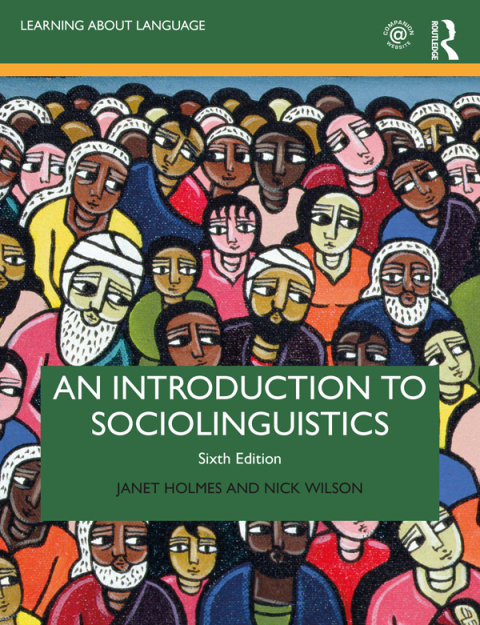Description
Efnisyfirlit
- Cover
- Half Title
- Title Page
- Copyright Page
- Contents in Brief
- Table of Contents
- List of Photos
- List of Figures
- List of Tables
- List of Boxes
- Preface for Students and Teachers
- About the Author
- Part I Introduction to Sociology
- 1 What do Sociologists Do?
- The Scientific Method and Sociological Investigation
- The Role of Theory
- Theories and Beliefs
- Sociological Theories at Different Levels of Analysis
- Methods
- Conclusions and Generalization
- Positivism
- Pitfalls of Studying Ourselves
- The Postmodern Critique
- A Response to the Postmodernist Critique
- The Need for Comparative Research
- Reactivity
- Values and the Effects of Social Research
- Ethics and Social Research
- The Sociological Perspective
- Why Study Sociology?
- Organization of the Book
- References
- Part II Fundamentals of Sociology
- 2 Biology: One Human Nature
- Evolution of the Human Species
- Evolved Predispositions
- The Sociobiology Controversy
- Self-interested Behavior
- Reciprocal Altruism
- Kin-Based Altruism
- Gender Asymmetry in Parenting
- Implications of Gender Asymmetry: Sex Differences in Mate Choice and Family Roles
- Individual Differences
- Hormones and Behavior
- The Importance of the Situation
- Other Evolved Predispositions
- Religion and Magic
- Dislike of Out-Groups and Ethnocentrism
- Male Sexual Jealousy
- Violent Aggression in Males
- Deference Behavior
- Free Will and the Naturalistic Fallacy
- Cultures Can Exacerbate or Suppress the Effects of Evolved Predispositions
- Conclusion
- References
- 3 Culture: Socialization, Norms, And Roles
- Biological Bases of Cultural Learning
- Language Acquisition
- Social Interaction and the Development of the Self
- Development of the Self
- Roles
- Goffman: Performing Social Roles
- Mirror Neurons and Empathy
- Socialization
- Conclusion
- References
- 4 Culture and Subsistence Technology
- The Importance of Subsistence Technology
- Hunting and Gathering Societies
- Horticultural Societies
- Agrarian Societies
- Ascribed versus Achieved Statuses
- Industrial and Postindustrial Societies
- Norms and Technology
- Culture
- Culture Shock
- Why Do Cultures Differ, Even among Societies That Are Technologically Similar?
- Conclusion
- References
- 5 Social Groups and Networks: Kin Groups, Classes, Organizations, Status Groups, Political Groups, and Social Networks
- Families, Clans, and Tribes
- Classes and Companies
- Classes
- Companies
- Rise of Bureaucracy
- Status
- Party
- Social Networks
- Small World Syndrome
- Efficacy of Weak Ties and Structural Holes
- Density and Longevity
- Why Your Friends Are More Popular than You
- Social Groups and Networks
- Conclusion
- References
- 6 Institutions
- Institutions as Systems of Rules and Associated Behavior Patterns
- Institutions and Norms
- Greef: The Five Basic Institutions
- Hunters and Gatherers: !Kung of the Kalahari
- Horticulturalists: Dani of Western New Guinea
- Agrarian Society: Japan during the Edo Period
- Industrial Society: Contemporary United States
- Effects of Institutions
- Where Do Institutions Come from?
- History
- Power
- Conclusion
- References
- 7 Demography
- Population Trends in History
- Improvements in Public Health
- Better Nutrition
- Advances in Health-Related Knowledge
- Fertility Decline
- The Demographic Transition
- Contemporary Demography
- The Rich and Poor World Divide
- Population Pyramids
- Implications of Demography for Society
- Age Structure
- Urbanization and Population Density
- Age and Sex Structure in Smaller Groups
- How Many People Can the World Bear?
- Immigration
- Demography and the Democratic Process
- Conclusion
- References
- Part III Topics in Sociology
- 8 Microsociology
- Social Effects on Individuals
- Milgram’s Obedience Studies
- Asch’s Conformity Studies
- Studies of Helping Behavior
- Conclusion
- How Individuals in Groups Create Social Effects
- Symbolic Interactionism
- Exchange Processes
- The Power-Dependence Principle
- The Prisoner’s Dilemma
- Solutions to the Prisoner’s Dilemma
- Trust and Reputation
- Status Processes
- Conclusion
- References
- 9 Sociology of the Family
- Preindustrial Marriage Patterns
- Bridewealth versus Dowry
- Rules of Descent and Marital Residence
- Control of Women’s Sexuality
- Infibulation and Clitoridectomy
- Menstrual Taboos
- Sex and the Double Standard
- Families and Children
- Modernization and Change in Marriage Patterns
- The Divorce Revolution
- Modern Love
- Contemporary Marriage
- Same Sex Couples, Marriages, and Civil Unions
- The Contemporary Family in the United States
- Nonbiological Families
- Late-Life Families and Fertility
- Violence in the Family
- Child Abuse
- Conclusion
- References
- 10 Social Stratification
- Stratification in Preindustrial Societies
- The Caste System of India
- Stratification in an Advanced Industrial Society: The United States
- Income Inequality
- What Is the Median Income?
- How Many People Live in Poverty?
- Wealth Inequality
- Status Inequality in the United States
- Social Mobility
- Income and Wealth Inequality in Comparative Perspective
- Conclusion
- References
- 11 Global Inequality
- The Nature of Global Inequality
- Rural Poverty
- Is Global Inequality Getting Better or Worse?
- Theories of Global Inequality
- Modernization Theory
- Dependency Theory
- Conclusion
- References
- 12 Contemporary Gender Inequality
- Comparative Gender Inequality
- What Causes Improvements in Women’s Position in Society?
- Gender Inequality in the United States
- Why the Gender Difference in Income?
- Do Evolved Sex Differences Influence Work Behavior?
- Workplace Harassment
- Leadership Style
- Language Use
- Deference Behaviors
- How Does the United States Compare to Other Developed Societies?
- Conclusion
- References
- 13 Race and Ethnicity
- The African Diaspora and the Emergence of Human Phenotypes
- Race
- Ethnicity
- Contemporary Race and Ethnic Relations throughout the World
- Racial and Ethnic Conflict
- Economic Divergence
- The Role of Immigration
- Race and Ethnic Relations in the United States
- Native Americans
- Early Contacts
- Indian Removal and the Trail of Tears (1838)
- Slavery and Race in North America
- History of Immigration and Immigration Law in the United States
- Japanese American Internment during World War II
- The 1965 Amendments
- Status of Race and Ethnic Groups in the United States Today
- Prejudice and Discrimination
- Us and Them
- Why Prejudice?
- Why Discrimination?
- Unconscious Bias
- Conclusion
- References
- 14 Sociology of Religion
- Religious Universals
- Churches, Sects, and Cults
- Religion in the World Today
- Why Is the United States So Religious in Comparison to Other Developed Societies?
- Sex Differences
- Why Do People Join a Religion?
- Religious Capital
- Social Networks
- Effects of Religion
- The Protestant Ethic and the Spirit of Capitalism
- Does Religion Make You Happier?
- Does Religion Make You Healthier?
- Religion and Violence
- Conclusion
- References
- 15 Crime and Violence
- Crime and Violence across Human Societies
- Which Societies Have the Most Crime?
- Who Is Most Likely to Commit Crime?
- The Young Male Syndrome
- What Keeps Young Men on the Straight and Narrow?
- Contemporary Patterns of Crime in the United States
- Why Has Crime Decreased Recently?
- How Does the United States Compare to Other Countries?
- Why Do People Commit Crime?
- Where You Live: Social Disorganization
- Who You Hang Out With
- What Do You Have to Lose?
- Conclusion
- References
- 16 Biosociology of Health
- Effects of Both Genes and Environment on Health
- Diseases in Different Areas of the World
- Differences across Developed Countries
- Sex Differences in Death and Disease
- Race and Ethnic Differences in Death and Disease
- Sex Differences in Mental Health
- Social Status Influences Health
- Physical Health
- Mental Health
- Health Influences Social Status
- Height and Social Status
- Lack of Deformity, Disability, and Status
- Beauty and Status
- Conclusion
- References
- 17 Economic Sociology
- Economies from Simple to Complex
- The Salt and Spice Trades
- The Emergence of Complex Economies
- Institutional Creation of the Market
- The Soviet Experiment
- Contemporary Economies
- Differences between the United States and Europe
- Development of a Global Economy
- Organizations and Work
- In Which Organizations Are Coworkers Most Supportive?
- Organizational Ecology
- Women in Organizations
- Conclusion
- References
- 18 Sociology of the Environment
- Current Environmental Concerns
- Climate Change
- Which Places Produce the Most CO2?
- Water Shortages
- Deforestation and Decline in Biodiversity
- The Tragedy of the Commons
- Possible Solutions to Climate Change
- What about Carbon Trading as a Solution to Climate Change Problems?
- Environmental Organizations as Public Goods
- Conclusion
- References
- 19 Political Sociology and Social Movements
- Politics in Preindustrial Societies
- Moore’s Social Origins of Dictatorship and Democracy
- Democracy in the World Today
- Theories of the Contemporary State
- Social Movements
- Civil Rights Movement
- Fall of Communism in Eastern Europe
- Islam and the Iranian Revolution
- Fundamentalist Muslim Organizations as Sponsors of Terrorism
- Why Do Social Movements Occur?
- Recent Social Movements
- When Do Social Movements Succeed?
- Conclusion
- References
- Name-Index
- Subject Index






Reviews
There are no reviews yet.